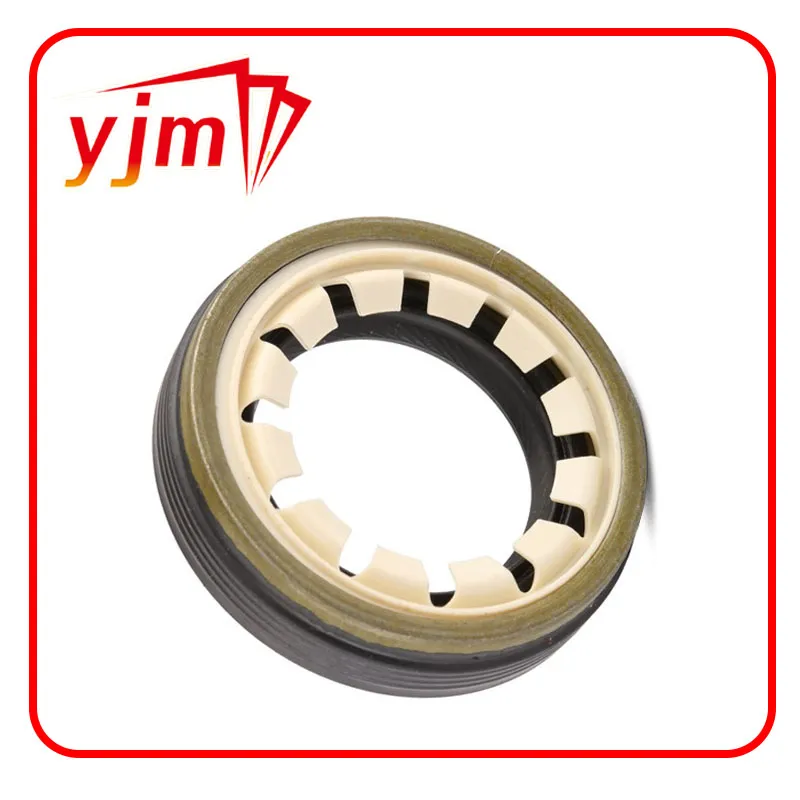PTFE Rotary Shaft Seals for Enhanced Performance and Durability in Sealing Applications
Understanding PTFE Rotary Shaft Seals Advantages and Applications
PTFE (Polytetrafluoroethylene) rotary shaft seals have gained significant popularity across various industries due to their superior performance and resilience in demanding environments. These seals are essential components used in rotary applications to prevent the leakage of fluids and the ingress of contaminants, ensuring the smooth operation of machinery.
What are PTFE Rotary Shaft Seals?
PTFE rotary shaft seals are engineered from polytetrafluoroethylene, a synthetic fluoropolymer known for its exceptional chemical resistance, low friction properties, and ability to withstand high temperatures. Unlike traditional seals made from rubber or other materials, PTFE seals can endure extreme conditions, making them ideal for applications where reliability is critical.
Advantages of PTFE Rotary Shaft Seals
1. Chemical Resistance PTFE is virtually inert, allowing seals to function effectively in the presence of aggressive chemicals, including acids, bases, solvents, and oils. This property makes PTFE seals suitable for use in the chemical, pharmaceutical, and food processing industries.
2. Temperature Tolerance PTFE can operate in temperatures ranging from -200°C to 260°C (-328°F to 500°F). This wide temperature range enables the seals to perform optimally in both freezing and high-temperature environments, ideal for automotive and aerospace applications.
3. Low Friction The low coefficient of friction inherent in PTFE materials reduces wear and tear on rotating shafts, extending the life of both the seal and the machinery itself. This characteristic is particularly beneficial in applications involving high-speed rotation.
4. Long Durability Thanks to its resistance to wear and fatigue, PTFE seals can offer a longer service life than traditional elastomeric seals. This durability translates into lower maintenance costs and less frequent downtime for machinery.
ptfe rotary shaft seals

5. Versatility PTFE rotary shaft seals can be manufactured in various sizes and configurations, enabling customization for specific applications. This flexibility allows for easier integration into existing systems without extensive modifications.
Applications of PTFE Rotary Shaft Seals
The versatility and superior properties of PTFE rotary shaft seals make them ideal for numerous applications, including
- Automotive Industry Used in drivetrains, hydraulic pumps, and engines to prevent leakage and ensure efficient operation under high temperatures and pressures. - Aerospace Essential in the complex systems of aircraft where reliability and performance are critical, particularly in hydraulic and fuel systems. - Pharmaceuticals and Food Processing Employed in equipment where hygiene is paramount, PTFE seals provide a contamination-free environment, as they do not leach harmful substances.
- Chemical Processing Withstanding aggressive chemicals, PTFE seals prevent leaks in pumps, mixers, and reactors, thereby maintaining safety in potentially hazardous environments.
- Oil and Gas Used in drilling equipment and pumps where exposure to harsh chemicals and high pressures is commonplace.
Conclusion
PTFE rotary shaft seals represent a significant advancement in sealing technology, combining chemical resistance, temperature tolerance, and low-friction characteristics to cater to a broad range of industrial needs. The adoption of these seals not only enhances the performance and reliability of machinery but also contributes to cost savings through reduced maintenance and extended service life. As industries continue to seek efficient and reliable solutions, the demand for PTFE rotary shaft seals is expected to grow, highlighting their essential role in modern manufacturing and processing systems.
-
Understanding Different Types of Oil Drain Plugs: A Comprehensive Guide
News Jun.27,2025
-
The Role of Nylon Washers in Oil Drain Maintenance: A Practical Guide
News Jun.27,2025
-
The Essential Guide to Drain Plug Washers: Types, Uses, and Best Practices
News Jun.27,2025
-
Everything You Need to Know About Washer and Plug Sealing: Polaris-Specific and General Tips
News Jun.27,2025
-
A Comprehensive Guide to Different Types of Oil Drain Plugs for Efficient Maintenance
News Jun.27,2025
-
A Complete Guide to Oil Drain Plug Washers: Tridon and Euro Car Parts Solutions
News Jun.27,2025
-
Understanding Oil Drain Plugs: Types, Issues, and Replacements
News Jun.26,2025
Products categories















